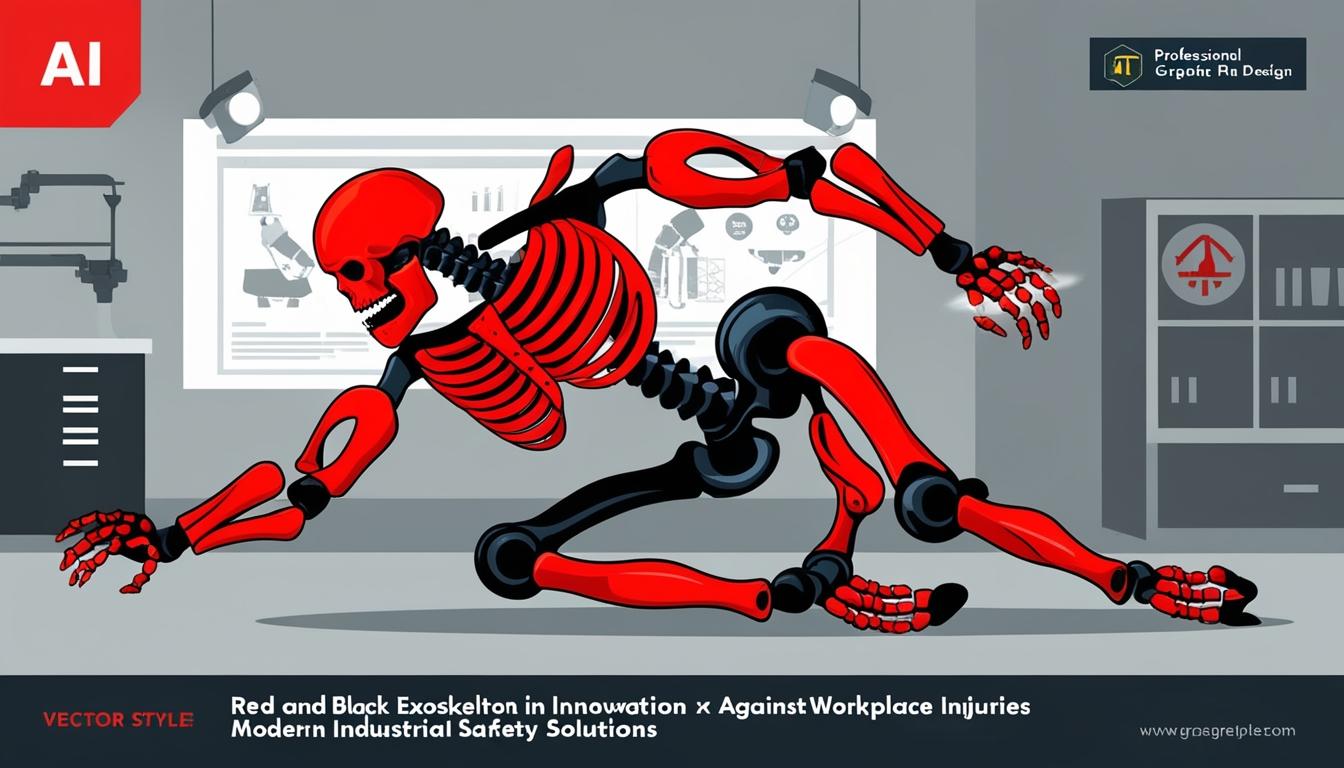Recent statistics from The Health and Safety Executive (HSE) have revealed a concerning trend in Great Britain, with 543,000 workers reporting work-related musculoskeletal disorders (MSDs) in the year leading up to March 2024. This figure represents a 15 per cent increase from the previous year. In response to this growing issue, Safetytech Accelerator, a technology and innovation organisation, has released a report indicating that emerging technologies, including Artificial Intelligence (AI) and exoskeletons, could potentially reduce MSD incidences in British industries by up to 58 per cent.
The report titled "Tackling MSD in Industrial Sectors with Emerging Tech" outlines case studies from technology firms that demonstrate how these advancements can significantly decrease the risk of MSDs in various industrial environments, including manufacturing plants, construction sites, warehouses, and logistics operations. According to the findings, implementing these technologies could lead to a reduction in MSD activities by between 45 and 58 per cent.
Exoskeletons, which are wearable suits designed to augment physical capabilities and alleviate strain on the user's muscles and joints, were identified as having the potential for the most considerable impact. Analysis of pilot projects showed that when exoskeletons were used across four distribution centres, there were no reported back strain injuries from an impressive 50 million lifts. This performance statistics contrast sharply with expectations that at least ten injuries would occur under normal operational conditions. Further research highlighted that exoskeletons could improve operational efficiency by reducing the effort required to complete tasks by up to 41 per cent.
The report also noted that AI technologies could reduce MSD-related risks by 57 per cent. Safetytech Accelerator identified a total of 44 companies that have developed AI solutions capable of mitigating the hazards associated with MSDs in industrial settings. These technologies function by pinpointing high-risk activities and guiding workers to execute tasks more safely. The cumulative funding raised by these companies since 2020 is nearly £500 million, aimed at fostering innovation within manufacturing, logistics, warehousing, and construction sectors.
Dr Maurizio Pilu, Managing Director at Safetytech Accelerator, commented on the challenges posed by MSDs, stating, “MSDs are a major workplace challenge, affecting employees’ well-being and costing businesses billions.” He emphasized that while the potential of these new technologies to reduce injuries is promising, further integration within workplaces is necessary. Dr Pilu expressed hope that the report would encourage industry leaders to engage with innovative technologies to combat MSD challenges.
In parallel, a study conducted by Make UK has found that three-quarters of British manufacturers intend to increase their investment in AI over the next year, despite the sector grappling with a substantial knowledge gap in this area. The survey, which included 151 manufacturers, revealed that only 16 per cent consider themselves knowledgeable about AI, with a mere 7 per cent rating their understanding as “very knowledgeable”.
Currently, approximately 36 per cent of manufacturers are employing AI technology to manage energy use and minimise waste. Additionally, 44 per cent are utilising AI for production line automation, significantly improving manufacturing efficiency through task automation. About a third of respondents report using AI to integrate new technologies with legacy systems via data integration and predictive analytics.
Make UK has warned that some manufacturers may risk missing out on critical innovation and productivity improvements due to a lack of familiarity and confidence in AI technologies. The report asserts that the manufacturing sector could experience substantial financial benefits as it constitutes around 47 per cent of the UK’s total private research and development investment.
Verity Davidge, Director of Policy at Make UK, highlighted the transformative potential of AI and automation, stating, “Their potential to drive economic growth and reshape industries is becoming increasingly clear.” She further noted the crucial role of the manufacturing sector in embracing these technologies to secure significant advancements in productivity and efficiency.
Source: Noah Wire Services
